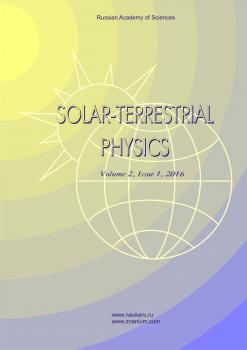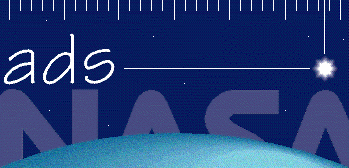Irkutsk, Russian Federation
Irkutsk, Russian Federation
Irkutsk, Russian Federation
Irkutsk, Russian Federation
Irkutsk, Russian Federation
In the next few years, a new radar is planned to be built near Irkutsk. It should have capabilities of incoherent scatter (IS) radars and mesosphere-stratosphere-troposphere (MST) radars [Zherebtsov et al., 2011]. The IS-MST radar is a phased array of two separated antenna panels with a multichannel digital receiving system, which allows detailed space-time processing of backscattered signal. This paper describes characteristics, configuration, and capabilities of the antenna and transceiver systems of this radar. We estimate its potential in basic operating modes to study the ionosphere by the IS method at heights above 100 km and the atmosphere with the use of signals scattered from refractive index fluctuations, caused by turbulent mixing at heights below 100 km. The modeling shows that the radar will allow us to regularly measure neutral atmosphere parameters at heights up to 26 km as well as to observe mesosphere summer echoes at heights near 85 km in the presence of charged ice particles (an increase in Schmidt number) and mesosphere winter echoes at heights near 65 km with increasing background electron density. Evaluation of radar resources at the IS mode in two height ranges 100–600 and 600–2000 km demonstrates that in the daytime and with the accumulation time of 10 min, the upper boundaries of electron density and ionospheric plasma temperature are ~1500 and ~1300 km respectively, with the standard deviation of no more than 10 %. The upper boundary of plasma drift velocity is ~1100 km with the standard deviation of 45 m/s. The estimation of interferometric capabilities of the MST radar shows that it has a high sensitivity to objects of angular size near 7.5 arc min, and its potential accuracy in determining target angles can reach 40 arc sec.
Incoherent scatter radar, MST radar, Phased array, Atmospheric radar potential, Ionosphere, Atmosphere
1. Bertin F., Campistron B., Caccia J.L., Wilson R. Mixing processes in a tropopause folding observed by a network of ST radar and lidar. Ann. Geophys. 2001, vol. 19, pp. 953-963.
2. Bowles K.L., Ochs G.R., Green J.L. On the absolute intensity of incoherent scatter echoes from the ionosphere. J. Res. of the National Bureau of Standards-D. Radio Propagation. 1962, vol. 66D, no. 4, pp. 395-407.
3. Farley D.T. Multiple-pulse incoherent-scatter correlation function measurements. Radio Sci. 1972, vol. 7, no. 6, pp. 661-666. DOI:https://doi.org/10.1029/RS007i006p00661.
4. Fukao S., Sato T., Tsuda T., et al. MU radar: New capabilities and system calibrations. Radio Sci. 1990, vol. 25, no. 4, pp. 477-485. DOI:https://doi.org/10.1029/RS025i004p00477.
5. Gavrilov N.M. Estimates of turbulent diffusivities and energy dissipation rates from satellite measurements of spectra of stratospheric refractivity perturbations. Atm. Chem. Phys. 2013, vol. 13, pp. 12107-12116. DOI:https://doi.org/10.5194/acp-13-12107-2013.
6. Hagen J.B., Baumgartner H.A. Backscatter gain of aperture antennas. Radio Sci. 1996, vol. 31, no. 4, pp. 693-699. DOI:https://doi.org/10.1029/96RS01095.
7. Hocking W.K. Measurement of turbulent energy dissipation rates in the middle atmosphere by radar techniques: A review. Radio Sci. 1985, vol. 20, no. 6, pp. 1403-1422. DOI:https://doi.org/10.1029/RS020i006p01403.
8. Hocking W.K. Recent advances in radar instrumentation and techniques for studies of the mesosphere, stratosphere and troposphere. Radio Sci. 1997, vol. 32, no. 6, pp. 2241-2270. DOI:https://doi.org/10.1029/97RS02781.
9. Hocking W.K. A review of mesosphere-stratosphere-troposphere (MST) radar developments and studies, circa 1997-2008. J. Atm. and Solar-Terr. Phys. 2011, vol. 73, pp. 848-882. DOI:https://doi.org/10.1016/j.jastp.2010.12.009.
10. Kantha L., Hocking W. K. Dissipation rates of turbulence kinetic energy in the free atmosphere: MST radar and radiosondes. J. Atm. and Solar-Terr. Phys. 2011, vol. 73, pp. 1043-1051. DOI:https://doi.org/10.1016/j.jastp.2010.11.024.
11. Latteck R., Singer W., Rapp M., et al. MAARSY: The new MST radar on Andøya - System description and first results. Radio Sci. 2012, vol. 47, RS1006. DOI: 10.1029/ 2011RS004775.
12. Lübken F.-J. Turbulent scattering for radars: A summary. J. Atm. and Solar-Terr. Phys. 2014, vol. 107, pp. 1-7. DOI:https://doi.org/10.1016/j.jastp.2013.10.015.
13. Lübken F.-J., Rapp M., Blix T., Thrane E. Microphysical and turbulent measurements of the Schmidt number in the vicinity of polar mesosphere summer echoes. Geophys. Res. Lett. 1998, vol. 25, no. 6, pp. 893-896.
14. Lübken F.-J., Singer W., Latteck R., Strelnikova I. Radar measurements of turbulence, electron densities, and absolute reflectivities during polar mesosphere winter echoes (PMWE). Adv. Space Res. 2007, vol. 40, pp. 758-764. DOI: 10.1016/ j.asr.2007.01.015.
15. Medvedev A.V. Razvitie metodov i apparatnykh sredstv radiofizicheskikh issledovanii verkhnei atmosfery Zemlina Irkutskom radare nekogerentnogo rasseyaniya [Development of methods and hardware of radiophysical investigations of Earth’s upper atmosphere at the Irkutsk Incoherent Scatter Radar]. Dr. Phys. and Math. Sci. Diss. Irkutsk, 2014. 225 p. (In Russian).
16. McCrea I., Aikio A., Alfonsi L., et al. The science case for the EISCAT_3D radar. Progress in Earth and Planetary Science. 2015, vol. 2. DOI:https://doi.org/10.1186/s40645-015-0051-8.
17. Murdin J. Errors in incoherent scatter radar measurements. EISCAT Technical Note. 1979, no. 79/16, 40 p.
18. Potekhin A.P., Medvedev A.V., Zavorin A.V., et al. Recording and control digital systems of the Irkutsk Incoherent Scatter Radar. Solnechno-zemnaya fizika [Solar-Terrestrial Physics]. 2008, iss. 11, pp. 77-86. (In Russian).
19. Rapp M., Lübken F.-J. Polar mesosphere summer echoes (PMSE): Review of observations and current understanding. Atmos. Chem. Phys. 2004, vol. 4, pp. 2601-2633. DOI: 10.5194/ acp-4-2601-2004.
20. Rapp M., Strelnikova I., Latteck R., et al. Polar mesosphere summer echoes (PMSE) studied at Bragg wavelength of 2.8 m, 67 cm, and 16 cm. J. Atm. and Solar-Terr. Phys. 2008, vol. 70, pp. 947-961. DOI:https://doi.org/10.1016/j.jastp.2007.11.005.
21. Romejko V.A., Dalin P.A., Pertsev N.N. Forty years of noctilucent cloud observations near Moscow: Database and simple statistics. J. Geophys. Res. 2003, vol. 108, no. D8, pp. PMR 10-1-10-6. DOI:https://doi.org/10.1029/2002JD002364.
22. Sato K., Tsutsumi M., Sato T., et al. Program of the Antarctic Syowa MST/IS radar (PANSY). J. Atm. and Solar-Terr. Phys. 2014, vol. 118, pp. 2-15. DOI:https://doi.org/10.1016/j.jastp.2013.08.022.
23. Shpynev B.G. Incoherent scatter Faraday rotation measurements on a radar with single linear polarization. Radio Sci. 2004, vol. 39, RS3001. DOI:https://doi.org/10.1029/2001RS002523.
24. Strelnikov B., Rapp M., Strelnikova I., et al. Small-scale structures in neutrals and charged aerosol particles as observed during the ECOMA/MASS rocket campaign. Ann. Geophys. 2009, vol. 27, pp. 1449-1456. DOI:https://doi.org/10.5194/angeo-27-1449-2009.
25. Strelnikova I., Rapp M. Studies of polar mesosphere summer echoes with the EISCAT VHF and UHF radars: Information contained in the spectral shape. Adv. Space Res. 2010, vol. 45, pp. 247-259. DOI:https://doi.org/10.1016/j.asr.2009.09.007.
26. Tereshchenko V.A., Tereshchenko V.D., Chernyakov S.M. Winter polar stratospheric clouds at high latitudes in 2010. Vestnik MGTU [Bulletin of Moscow State Technical University]. 2010, vol. 13, no. 4/2, pp. 1052-1059. (In Russian).
27. Tereshchenko V.D., Tereshchenko V.A., Kovalevich T.V. Seasonal variations of polar mesospheric echo of medium radio waves. Proc. 20th National Conference on Radio Wave Propagation. Nizhny Novgorod, July 2-4, 2002. Nizhny Novgorod: NIRFI, 2002, pp. 135-136. (In Russian).
28. Von Zahn U., Bremer J. Simultaneous and common-volume observations of noctilucent clouds and polar mesosphere summer echoes. Geophys. Res. Lett. 1999, vol. 26, no. 11, pp. 1521-1524.
29. Watkins B.J., Philbrick C.R., Balsley B.B. Turbulence energy dissipation rates and inner scale sizes from rocket and radar data. J. Geophys. Res. 1988, vol. 93, no. D6, pp. 7009-7014.
30. Zeller O., Zecha M., Bremer J., et al. Mean characteristics of mesosphere winter echoes at mid- and high latitudes. J. Atm. and Solar-Terr. Phys. 2006, vol. 68, pp. 1087-1104. DOI:https://doi.org/10.1016/j.jastp.2006.02.015.
31. Zherebtsov G.A., Zavorin A.V., Medvedev A.V., et al. The Irkutsk Incoherent Scatter Radar. Radiotekhnika i electronika [J. of Communications Technology and Electronics]. 2002, vol. 47, no. 11, pp. 1339-1345. (In Russian).
32. Zherebtsov G.A., Potekhin A.P., Kurkin V.I., et al. Radiophysical and optical instruments of the National Heliogeophysical Complex of RAS. Radiowave Propagation. Proc. XXIII National Scientific Conference. Yoshkar-Ola, May 23-26, 2011. Yoshkar-Ola: MarGTU, 2011, vol. 1, pp. 47-54. (In Russian).
33. Zrnic D. Estimation of spectral moments for weather echoes. IEEE Trans. Geoscience Electronics. 1979, vol. GE-17, no. 4, pp. 113-128. DOI:https://doi.org/10.1109/TGE.1979.294638.


















